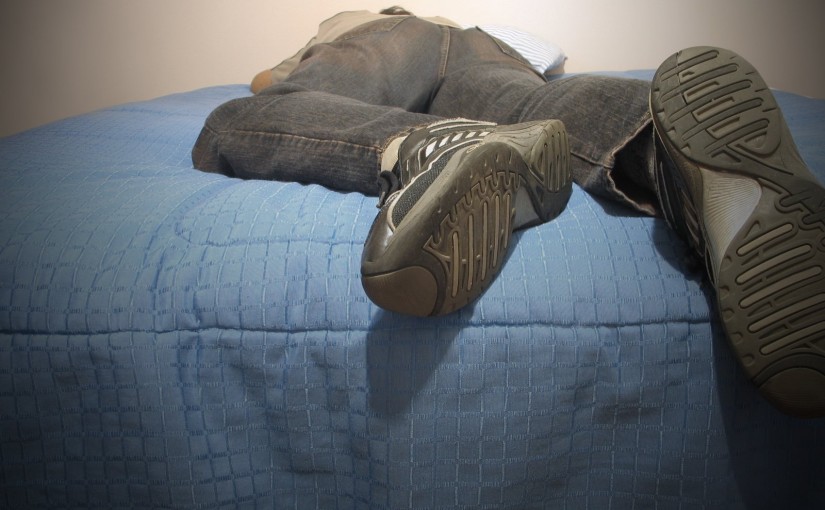A short while back, I saw an interesting infographic over at Small Business Trends that shows the sleeping habits of over 20 successful entrepreneurs and small business owners. It got me thinking…
How often do we hear about the crazy hours entrepreneurs and small business owners put into their companies- especially at the beginning when the business is starting up or during a period of rapid growth? In fact, being able to function on as little sleep as possible is often glorified.
But, many studies point to the negative impact of chronic sleep fatigue on a person’s health and well being. Since sufficient sleep is related to sustainable success, that brings up some vital questions:
- How much sleep is enough?
- Should you be taking naps?
- When is the ideal time to go to sleep?
- Does sleep broken down into smaller chunks of time have the same benefits of sleeping straight through the night?
Any entrepreneur or small business owner looking for some balance between work and life should know the answers to most if not all of these questions. The continue success of their business or their endeavors may depend on it.
Why Adequate Sleep is Important
Even if you may be out of commission, when you sleep your body is getting a lot done. While you are sleeping your body goes into maintenance-mode. It restores muscle tissue, removes harmful waste, and strengthens the memory of events that occurred during the day. While you sleep you are also helping to regulate a host of vital processes that support your immune system, metabolic functioning, and appetite.
Lastly, sleep is an essential factor in regulating the so-called circadian rhythm. This is your inner “body clock” that governs when you feel alert and awake versus tired and sleepy.
Some Sleep Research
According to recent research from the National Sleep Foundation, adults ages 18 to 64 should be getting on average 7 to 9 hours of sleep a night, while older adults over the age of 65 need a bit less sleep, only 7 to 8 hours. But there is a bell curve. Some people can truly function on less than 7 hours, while others may consistently need over 9 hours a night. However, most sleep experts hold that regularly getting less than six hours of sleep a night compromises a person’s health as well as physical and mental performance.
Research shows that people who are chronically sleep deprived tend to have a number of negative effects:
- They show signs of insulin resistance, a disruption in the way the body normally processes glucose for energy that can eventually lead to diabetes.
- It compromises cognitive performance, meaning individuals are less capable of making good decisions, display less creativity, and their physical reflexes are also impaired
- Sleep deprivation also leads to emotional negativity, lack of enthusiasm, and less productivity.
- Studies have further found that sleep deprivation is linked to the appearance of chronic diseases, such as heart disease, Alzheimer’s, and obesity.
Tips for Improving Sleep Quality
The quality not just the quantity of your sleep can also impact how much a you need. Someone who sleeps poorly can still feel tired even when he or she has technically been sleeping enough hours. Even if you don’t have a sleep disorder, such as sleep apnea, there are many things that can adversely affect the quality of a your sleep, namely:
- Curb the Consumption of caffeine, alcohol and nicotine: researchers have linked caffeine, alcohol and nicotine use to poor sleep quality.
- Don’t sleep at odd times. Going to bed at the same time each night helps regulate your circadian rhythm mentioned above. Following an irregular sleep schedule will lead to poor sleep quality.
- Cut out electronics and electric lighting before going to bed. Electronic lights, such as those from a computer screen or phone, act like a stimulant which interferes with your circadian rhythm as much as physical stimulants, such as caffeine and alcohol. Even exposure to bright room lights before bed may negatively affect your sleep. And for heaven’s sake keep your phone away from your bed!
- Being repeatedly woken up. Waking up multiple times in the middle of the night can leave you feeling exhausted. (If you’re a parent of small children, then you know this very well.) But, at least do your part to ensure that you room and bed are as comfortable as can be. Sleeping in a quiet, darkened room, in a comfortable bed and at a comfortable temperature can help you sleep better.
- Learn about sleep cycles. Recent research suggests it’s not the hours we sleep that matter the most; it’s that we don’t interfere with the natural sleep cycles we go through during that sleep. The brain actually has a pattern of sleep. It goes through cycles containing both non-REM (Rapid Eye Movement) sleep, and REM sleep. Each of these cycles lasts roughly 90 minutes, and you should pass through five or six of them during the night. Waking up mid-cycle can leave you feeling exhausted. The goal is the time your wake up for the period between cycles. To help you figure out when that is, there are a few “sleep calculators” that do the work for you. Here is one you can try.
In short, how you sleep can set the tone for the whole day. If you want to be successful, in business and in life, then this is one activity you should learn how to maximize.
